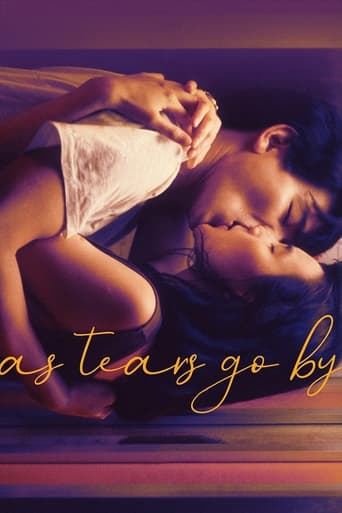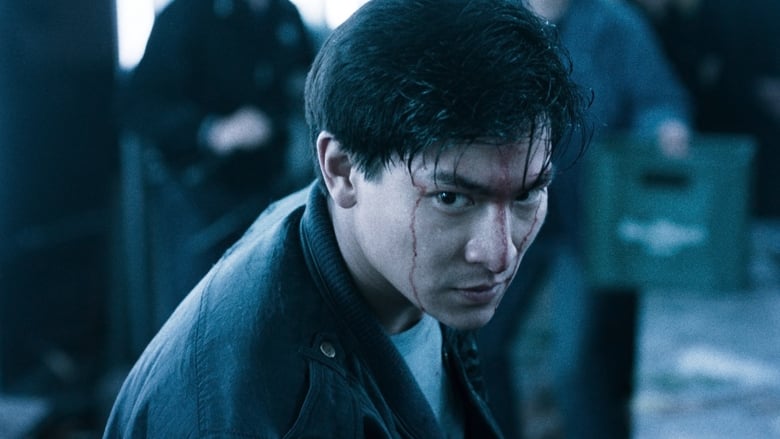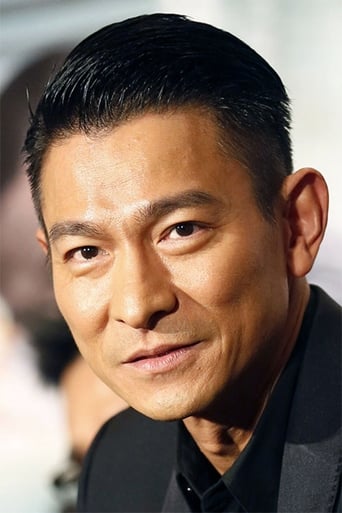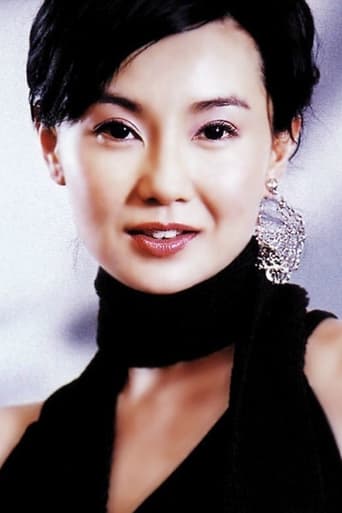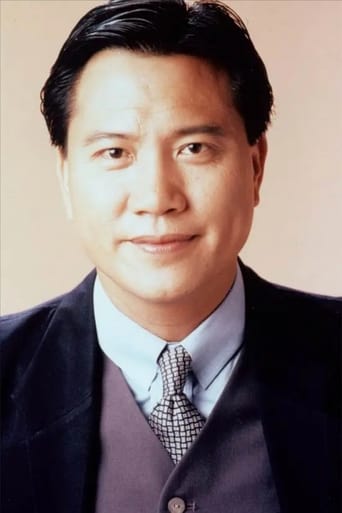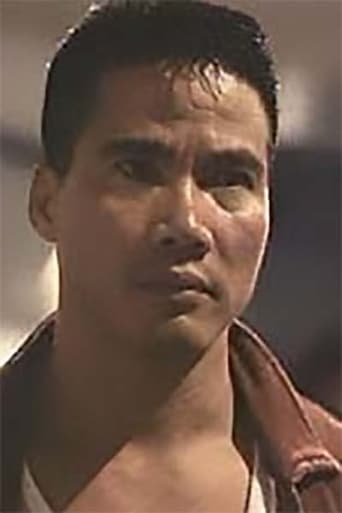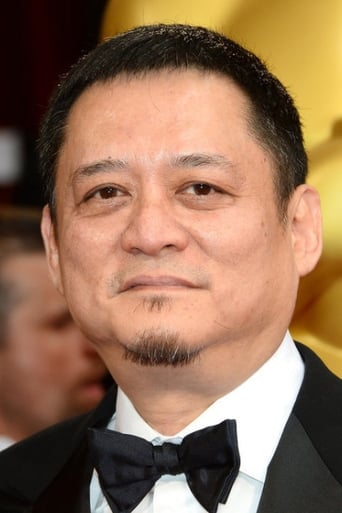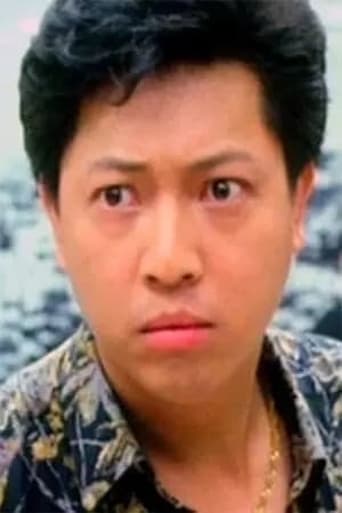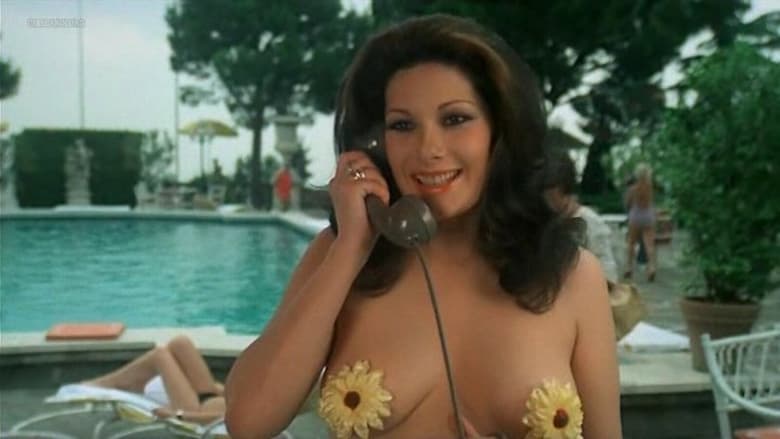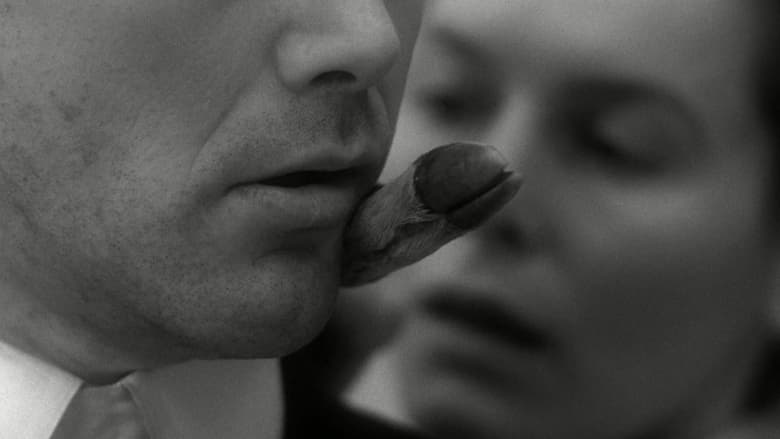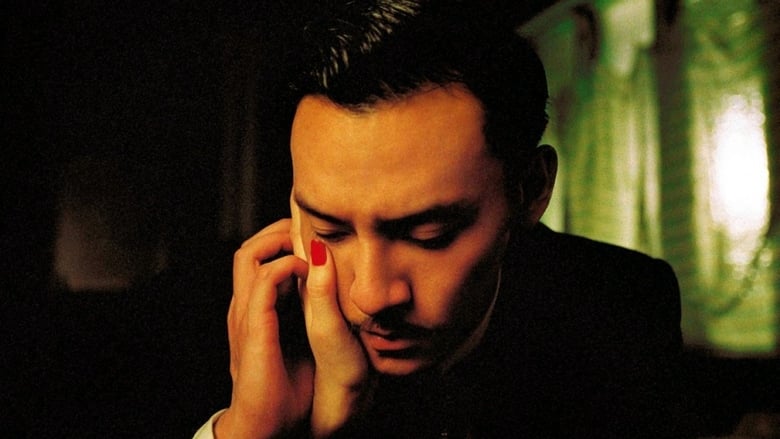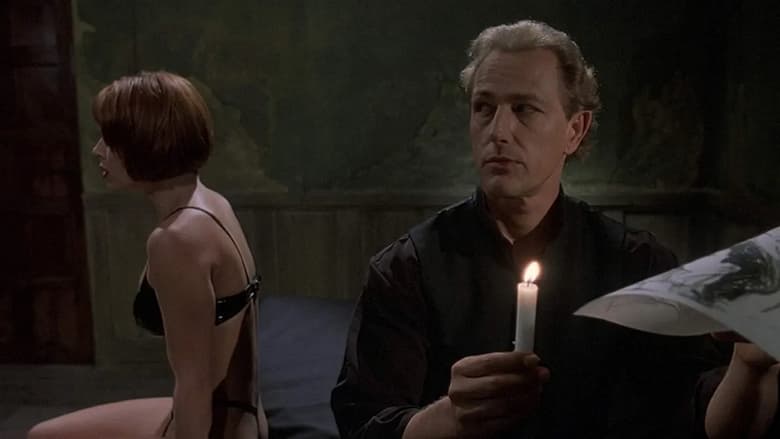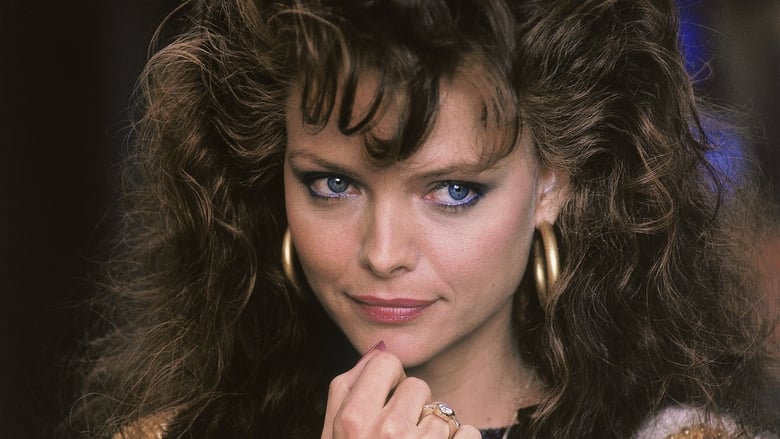Mid-level gangster Wah falls in love with his beautiful cousin, but must also continue to protect his volatile partner-in-crime and friend, Fly.


Similar titles
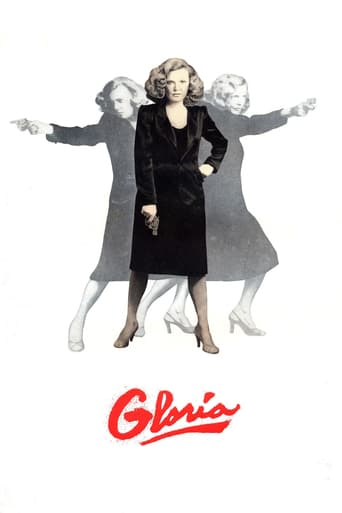
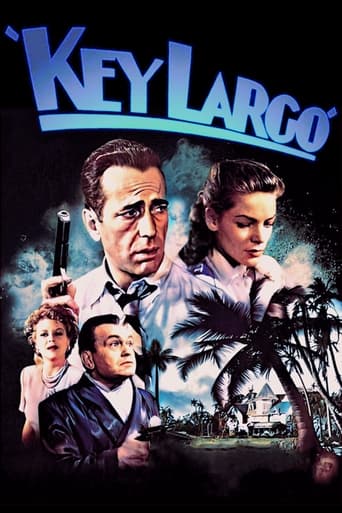
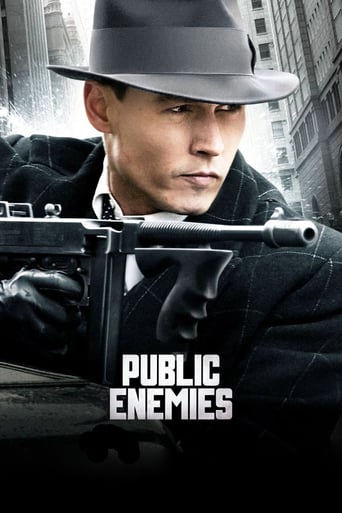
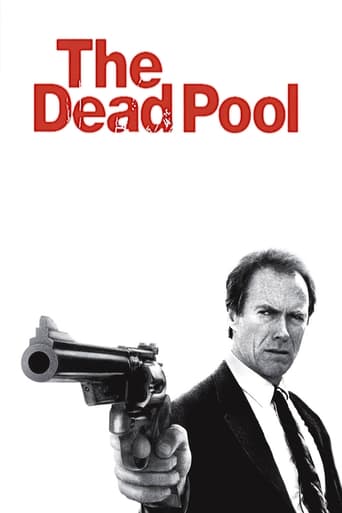
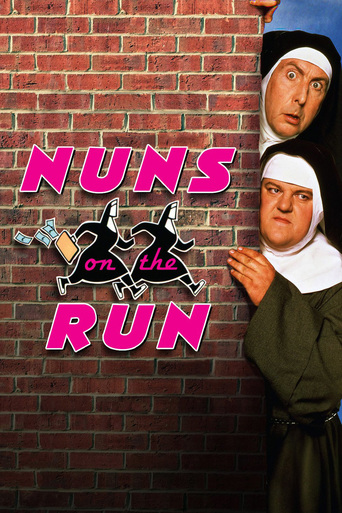
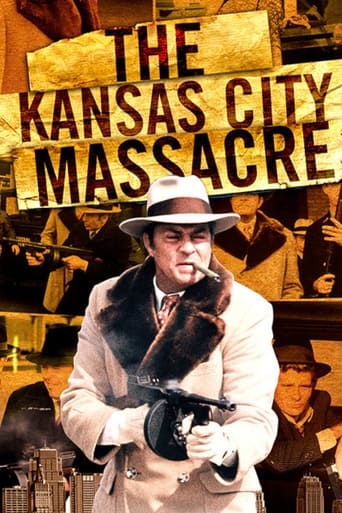
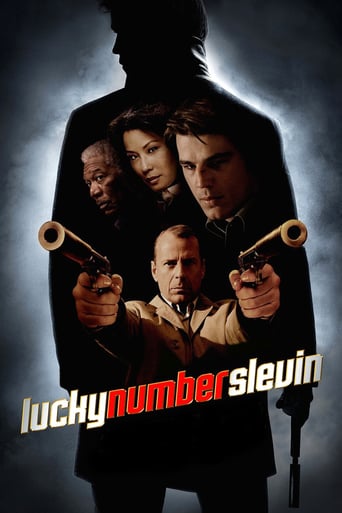
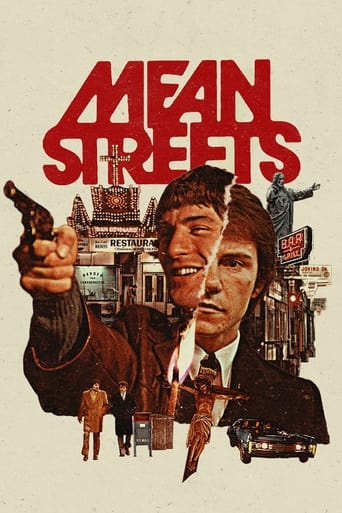
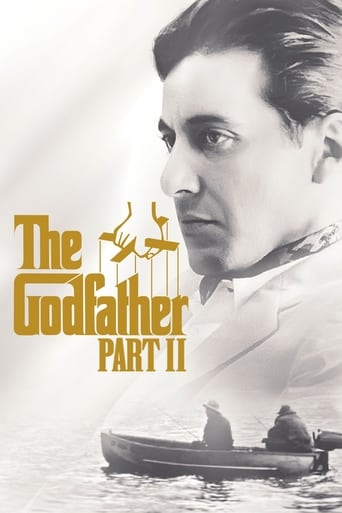
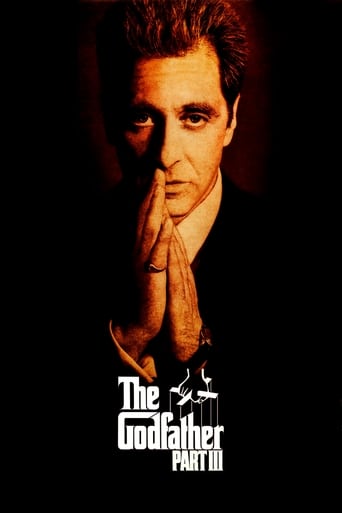
Reviews
There is an inherent danger in looking retroactively at early films from established directors. As with Jarmusch's "Permanent Vacation", Bertolucci's "The Grim Reaper" or even Kubrick's "Killer's Kiss", it can be difficult - after garnering an admiration for a director - to look back at their less refined beginnings.Such is the case with Wong Kar-Wai's As Tears Go By (Wong gok ka moon). During the film's early stages, it feels somewhat like an unhappy coupling between a flashy Hong Kong martial arts film and those really cheesy Chinese serials where the emperor's daughter accidentally falls pregnant to the chief eunuch warrior (or whatever, I've never watched one with subtitles). Having said that though, it doesn't quite reach the extremes of either: firstly because the action and violence, although the driving force of the film, are not in the least stylised but are in fact quite confronting; and secondly because the cheese of the soap opera elements is really only apparent through the use of dodgy 80's music. But this is simply dated, not inappropriate - after all, the same could be said about Blade Runner, although the montage about halfway through this film set to a Cantonese version of "Take my Breath Away" is just embarrassing.As Tears go By also happens to get better as it progresses. Perhaps this is because the romance between Ah-Wah (Andy Lau) and Ah-Ngor (Maggie Cheung), which seems ready to overpower the film early on, becomes sidelined to the underground-crime half of the plot, which is certainly the most successful and believable half. Wong craftily creates a hard-boiled atmosphere and there is a lot of emotional resonance in the relationship between Wah and his young protégé, Fly (Jacky Cheung). Unfortunately, the same cannot really be said of the male-female relationship between the two stars. It manages to gain a small amount of credibility purely through the fact that we have seen the quiet girl-bad boy romance explored to greater depths in other films. Put this small amount of believability aside however, and it has a very tacked-on, Michael Bay kind of feel to it.Although the film is easily criticised, one can nevertheless see Wong's style making its first appearance here, and I can certainly see the justification behind one reviewer's quote on the DVD case: "A promising debut". I would like to particularly single out his clever use of intimate but skewed, 'Dutch' camera angles to highlight the (forgive me for this expression) humanistic dehumanisation which would foreground his more recent and more famous films, "In the Mood for Love" and "2046". He also drives the film at an excellent pace, in spite of the fact that alternations between the subplots give it a slightly episodic, fragmented feel.Ultimately, my major complaint is simply that while both the romance and the action have a great deal of potential, used together in this way they don't work. Personally I think Wong could either expand on the romance more or eradicate it entirely, and he would have a more complete film.And while hoping not to contradict myself, I have to say that the above comments, which pervaded my thoughts for 90 minutes of this film, were quite rocked by the superb conclusion - framed within criminal violence but so much 'about' the romance - let me just say, whatever I may have thought about most of this film, it was definitely worth it for the ending. Overall, interesting mainly for being Wong's debut and definitely a taste of things to come.6/10
My feelings towards this film was mixed. In a way it seems to be overrated, just because it was Wong Kai Wei's first film and it was probably his only commercial and gangster film. It was very typical of Hong Kong gangster film in the 80s, with the same overplayed message of loyalty and the main characters trying to prove their value being the central theme. The story was plain and dull, and truthfully, it was another one of the gangster films made in the 80s that is influence by John Woo. Still, I feel this movie deserved some credit for being raved about in certain circles. First of all, this was one of the better gangster films out there, and even though the subject of loyalty seemed overplayed, it was still touching to see the friendship of a boss and his follower. Secondly, and very interestingly, the movie was filmed with an artistic touch. I have rarely seen a gangster film incorporating artistic techniques, such as the distortion of time or using shots of nature, signatures of Wong Kai Wei's latter films, but these artistic scenes became memorable. How could I ever forget the scene where Maggie was walking gingerly through the door, stopped, hesitated for a moment, but continued and slowly, but with class of a true lady, make her way up the stairs? That scene was unforgettable. Although the viewer could only see her back, but from her back, she was still able to project the feeling of uncertainty, but in the end, bravery for going after her love. Usually a scene like this would only be seen in art films, and rarely in a gangster film. In this film, however, the artistic touch only added to the movie's special appeal. A lot of Wong's artistic shots were unforgettable.The performances by the two lead actors, Andy Lau and Jackie Cheung, were solid and touching, but far from spectacular. A lot of times I feel their expressions, especially Lau, were forced. Jackie Cheung seemed more natural in his acting, but his expressions were exaggerated, probably exaggerated to enforce his aura of cockiness, an aura that was not believable. Future films of the two stars, especially the recent ones, had better performances, and the viewer could see their vast improvements. The performance of Maggie Cheung must be complimented. Her sweet naiveness was so convincing that I had a hard time linking her with the ditsy roles she took before, such as in the Police Story. One could tell big things were ahead for her, and her future success proved it.Overall, very interesting film, but just another one of the 80s gangster film.7/10
No better one day film school can be found in watching "Mean Streets" and then this.Superficially they seem the same and Kar-Wai has told us that he patterned this, his first feature after Scorsese's first.Here's the lesson: Scorsese belongs to a school of thinking where actors create characters, real extreme and powerful characters. These characters literally create the situations around them. The filmmaker's job is to attach the camera to the characters. Nearly all Italian and Italian-American filmmakers believe this. This is fine if you can live on espresso, but most of us in a film life need something to sustain us.Kar-Wai in his later films is clearly in another camp. He literally starts with no script. He creates a cinematic tone. Into that tone is spun a place and his actors are expected to find their way within it. Only then do we see characters, and the camera is never, ever glued to personalities.It is a world of difference, as different as people who can talk only about other people contrasted to those who can create another world in a conversation.Sooner or later, all lucid watchers must make a choice about how big their film universe can be. This was Kar-Wai's beginning. It is hard to see unless you know his later stuff. But it is there, like the pollen in the air.Ted's Evaluation -- 3 of 3: Worth watching.
Wong Kar Wai's debut effort as a feature film director already showcase flashes of talent from the would-be auteur. ALthough not as groundbreaking or innovative as some of his better known films (eg. Chungking Express/ Fallen Angels), nevertheless it displayed some of his distinct signature styles, (eg. naturalistic & idiosyncratic dialogue, character driven films) and themes(eg. love,urban environment, world in turmoil and chaos)Obviously inspired by Martin Scorsese's early effort 'Mean Streets', which was in turn partly inspired by 'beat' filmmaker John Cassevetes debut film 'Shadows'; 'As Tears Go by' is 'Mean streets' set in Hong Kong. The harsh depiction of traid and street gang culture is in sharp contrast to the stylish gun-totting hoods from John Woo's 'A Better Tomorrow'. In many ways, Wong's depiction came accross as more bittingly realistic, helped by its many on-location filming (another WKW style). Hong Kong's neon lit streets/dark dingy alleys/fluorescence interiors/late night piers, blended in perfectly with Wong's story set in contemporary urban HK. Very interesting camera work and lighting that is different from the other HK films coming out from that era. It displayed an early WKW visual flare, again evident in Chunking Express and Fallen Angels, which utilizes similar locations and settings, as well as ferentic camera movements and stylised composition. Credit should be due to art director Chang Shu Ping, who collaborated with Wong in all of his subsequent films. Of note too is cinematographer Andrew Lau, who will go on to helm the 'Young & Dangerous' series that bears several visual & subject matter influences from this film.Though I must add that Young & Dangerous portrayal of heroic gansters is more glorifying than Wong's pathetic bloodied characters.Excellant performances from all three leads, which bagged Jacky CHeung(doing a Robert de niro) the best supporting actor and Andy Lau a nomination for best actor at that year's HK film awards. Maggie Chueng claimed that this was the first time she discovered the true potential of screen acting. Also unforgettable is Alex Man's supporting turn as the most sadistic villian imaginable.'As Tears go By' is probably the only WKW film that is fully scripted (WOng served as a scriptwriter in other generic HK movies for several years before this effort), and it shows. Some clever and subtle original touches in the first act, that translates Scorsese's tortured characters and ethnic Itlian dispora to local HK flavor and motivations. However, the conflict dragged on by the second act, and the film seems indecisive as whether to focus on the Andy Lau/Maggie Cheung love story arc or on his dillema with his understudy pal Jacky Cheung and their conflict with bad ass Alex Man. Scorsese's 'Mean Streets' works because it manages to stay focus on the main protaganist POV and motivations. The whole film is centered around Harvey Keitel's character, and the other characters serves as his burden to his climb up the mafia ranks. That direction seems lost in Wong's version. The last act/conclusion seems rushed, cliche and definitely predictable. What I suspect, and logically seems plausible, is the interference of the producers and financiers on 'As Tears go by'. WOng had claimed in interviews that his early work was being hampered in many ways by others, hence his firm decision and insistence to be the producer in all his subsequent films. He wants to and achieves total artistic control over all of his later films.Nevertheless, 'As Tears Go by' is without a doubt a milestone of WOng's career as well as Hong Kong cinema. The visceral on-screen violence, realistc seedy portrayal of HK's underworld and streets locale, and cosmopolitan loves and relationships was never before seen on HK screens during its day. It is preceded only by John Woo's 'A Better Tomorrow', which in many ways is a different kind of film with very different themes. Definitely worth catching for fans of Wong Kar Wai and those who love Hong Kong cinema.7/10 from me.
